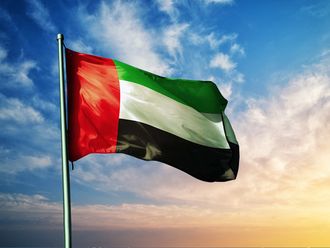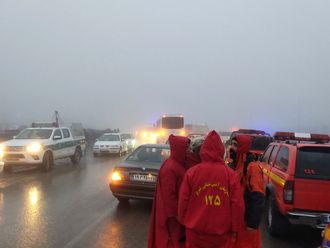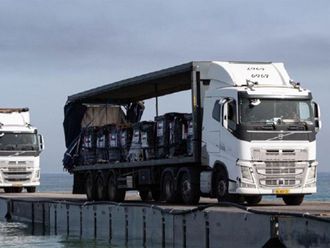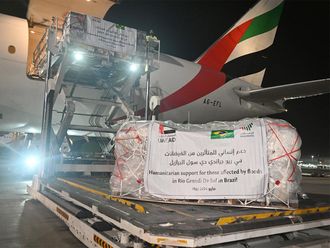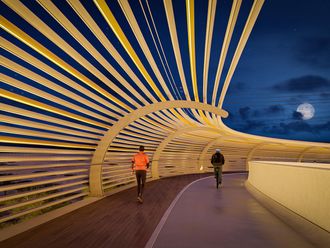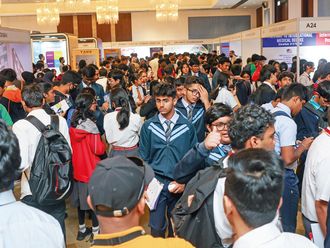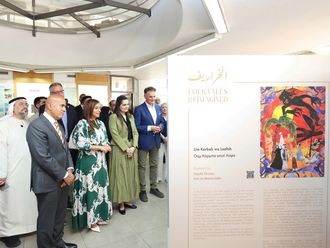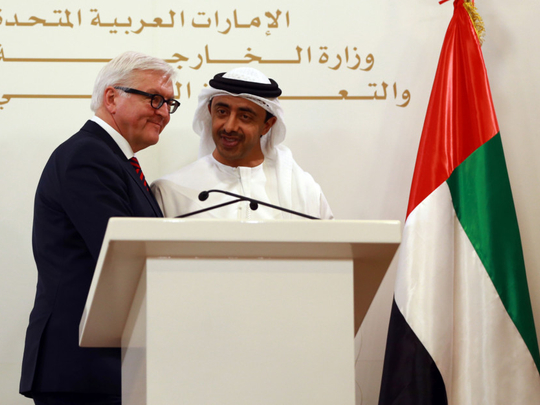
Abu Dhabi: Iran must should stop interfering in Arab affairs and prove that it is ready to engage with regional countries, a senior UAE minister said on Monday.
“Restoring stability to Iraq and Syria and putting an end to their crises require that Iran stop interfering in Arab affairs. Everybody should recognise that there is no military solution to the crises in these two countries, that a political solution is the one everybody should endeavour to reach and the establishment of an inclusive government that includes all the components of the people in both the countries,” Shaikh Abdullah told a joint press conference with his German counterpart Frank-Walter Steinmeier in Abu Dhabi on Monday.
Shaikh Abdullah said the number of Syrian people living in the UAE has doubled since violence broke out in the country. “It has been five years since the start of violence in Syria and the number of Syrians in the UAE was 100,000, and today, the number has increased a lot, and we do not call them refugees. But we now have 100,000 more Syrians since the beginning of the events in Syria,” he said.
“In this context it must be noted that we are working closely to support and help all countries which receive Syrian refugees, especially neighbours such as Lebanon, Jordan, Iraq and Turkey. We also have a concern about seven million refugees or internally displaced people inside Syria as well and this is very complicated, and I think that the only solution to address this issue lies in finding a solution to the Syrian crisis. As long as the situation remains in Syria, things will become especially complicated for the refugee issue specifically.”
Shaikh Abdullah added: “We see some hope in the efforts of UN envoy Staffan de Mistura, because for the first time in five years we have something that calls for optimism, calling on all actors of the Syrian crisis, especially the United States and Russia, to exert utmost efforts in order to lead the Vienna talks into carrying a better future for the Syrians.”
Shaikh Abdullah stressed the need to put an end to Iranian interference in the region. Iran is the only country which has a constitution that provides for export of revolution, he said, noting that it allows Tehran to export its sectarian ideology. “This is dangerous work,” he noted.
Iran could become a neighbour and a friend of the countries in the region but should desist from such acts, he said, adding that the P5+1 talks showed that Iran was ready to engage with the world, but Iran must show that it is ready to engage with the region and its neighbouring countries.
For his part, German Foreign Minister Frank-Walter Steinmeier praised the strong political ties between his country and the UAE especially during time of crises and on issues of common interest, pointing out that UAE is a popular tourist destination for German people.
He said his talks in Abu Dhabi focused on consultation on the current conflicts in the region and the situation in Yemen, Libya and Lebanon, and in particular the way forward in Syria. The two countries discussed political and current efforts to improve the humanitarian situation and humanitarian aid to the Syrian people.
Steinmeier stressed the importance of the truce, which was announced recently, between the moderate opposition and the Syrian regime, saying it contributed to a great calming of hostilities and the situation on the ground, helping to encourage the parties to the conflict to refer to the Geneva talks again.
He said that a return to political talks on the future of Syria, leading to the formation of an inclusive government, represents the best consolidation, and strengthening of the current calm.
He stressed the importance of working to bring humanitarian aid to the Syrian refugees at home, as there are about 120,000 people trapped inside Syria.
In response to a question over Germany’s intention to increase its military role in Syria, the German minister pointed out that the region has been facing a new conflict for several years now. It cannot be solved by military means alone, but there has to be the right combination of military efforts and the creation of political negotiation opportunities, and this depends on the parties to the conflict and neighbouring countries, noting in this regard Germany’s cooperation with the Peshmerga in northern Iraq for a year and a half and that Germany has been involved in launching military strikes against Daesh, providing air cover for the Peshmerga forces, and support in repelling this terror organisation’s attacks.


